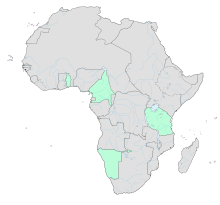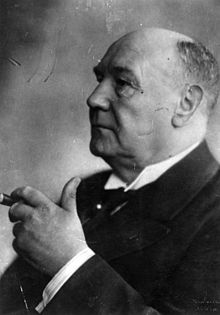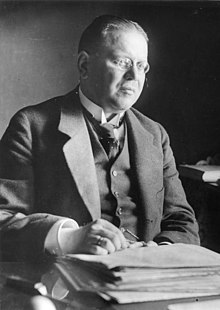
Racial segregation is the separation of people into racial or other ethnic groups in daily life. Segregation can involve the spatial separation of the races, and mandatory use of different institutions, such as schools and hospitals by people of different races. Specifically, it may be applied to activities such as eating in restaurants, drinking from water fountains, using public toilets, attending schools, going to films, riding buses, renting or purchasing homes or renting hotel rooms. In addition, segregation often allows close contact between members of different racial or ethnic groups in hierarchical situations, such as allowing a person of one race to work as a servant for a member of another race. Racial segregation has generally been outlawed worldwide.
Miscegenation is marriage or admixture between people who are members of different races. The word, now usually considered pejorative, is derived from a combination of the Latin terms miscere and genus. The word first appeared in Miscegenation: The Theory of the Blending of the Races, Applied to the American White Man and Negro, an anti-abolitionist pamphlet David Goodman Croly and others published anonymously in advance of the 1864 presidential election in the United States. The term came to be associated with laws that banned interracial marriage and sex, which were known as anti-miscegenation laws. These laws were overruled federally in 1967, and by the year 2000, all states including Alabama had removed them from their laws. In the 21st century, newer scientific data shows that human populations are actually genetically quite similar. Studies show that races are more of an arbitrary social construct, and do not actually have a major genetic delineation.
The terms multiracial people or mixed-race people refer to people who are of more than one race, and the terms multi-ethnic people or ethnically mixed people refer to people who are of more than one ethnicity. A variety of terms have been used both historically and presently for mixed-race people in a variety of contexts, including multiethnic, polyethnic, occasionally bi-ethnic, Métis, Muwallad, Melezi, Coloured, Dougla, half-caste, ʻafakasi, mestizo, mutt, Melungeon, quadroon, octoroon, sambo/zambo, Eurasian, hapa, hāfu, Garifuna, pardo, and Gurans. A number of these once-acceptable terms are now considered offensive, in addition to those that were initially coined for pejorative use.
Immorality Act was the title of two acts of the Parliament of South Africa which prohibited, amongst other things, sexual relations between white people and people of other races. The first Immorality Act, of 1927, prohibited sex between whites and blacks, until amended in 1950 to prohibit sex between whites and all non-whites. The second Immorality Act, of 1957, continued this prohibition and also dealt with many other sex offences. The ban on interracial sex was lifted in 1985, but certain sections of the 1957 act dealing with prostitution remain in force as the "Sexual Offences Act, 1957".
Loving v. Virginia, 388 U.S. 1 (1967), was a landmark civil rights decision of the U.S. Supreme Court which ruled that laws banning interracial marriage violate the Equal Protection and Due Process Clauses of the Fourteenth Amendment to the U.S. Constitution. Beginning in 2013, the decision was cited as precedent in U.S. federal court decisions ruling that restrictions on same-sex marriage in the United States were unconstitutional, including in the Supreme Court decision Obergefell v. Hodges (2015).

Half-caste is a term used for individuals of multiracial descent. It is derived from the term caste, which comes from the Latin castus, meaning pure, and the derivative Portuguese and Spanish word casta, meaning race. Terms such as half-caste, caste, quarter-caste and mix-breed were used by colonial officials in the British Empire during their classification of indigenous populations, and in Australia used during the Australian government's pursuit of a policy of assimilation. In Latin America, the equivalent term for half-castes was Cholo and Zambo. Some people now consider the term offensive.

The Prohibition of Mixed Marriages Act, Act No. 55 of 1949, was an apartheid-era law in South Africa that prohibited marriages between "whites" and "non-whites". It was among the first pieces of apartheid legislation to be passed following the National Party's rise to power in 1948. Subsequent legislation, especially the Population Registration and Immorality Acts of 1950, facilitated its implementation by requiring all individuals living in South Africa to register as a member of one of four officially defined racial groups and prohibiting extramarital sexual relationships between those classified as "white" on the one hand and those classified as "non-White" on the other. It did not criminalize sexual relationships between those classified as "non-Europeans".

The German colonial empire constituted the overseas colonies, dependencies, and territories of the German Empire. Unified in 1871, the chancellor of this time period was Otto von Bismarck. Short-lived attempts at colonization by individual German states had occurred in preceding centuries, but Bismarck resisted pressure to construct a colonial empire until the Scramble for Africa in 1884. Claiming much of the remaining uncolonized areas of Africa, Germany built the third-largest colonial empire at the time, after the British and French. The German colonial empire encompassed parts of several African countries, including parts of present-day Burundi, Rwanda, Tanzania, Namibia, Cameroon, Gabon, Congo, Central African Republic, Chad, Nigeria, Togo, Ghana, as well as northeastern New Guinea, Samoa and numerous Micronesian islands.
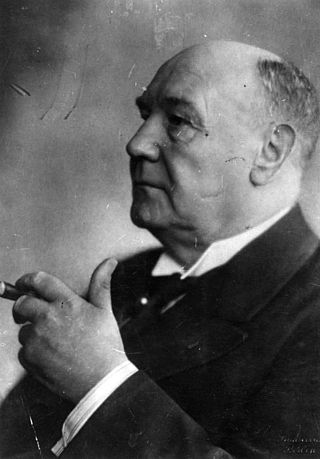
Wilhelm Heinrich Solf was a German scholar, diplomat, jurist and statesman.

In 1924, the Virginia General Assembly enacted the Racial Integrity Act. The act reinforced racial segregation by prohibiting interracial marriage and classifying as "white" a person "who has no trace whatsoever of any blood other than Caucasian". The act, an outgrowth of eugenicist and scientific racist propaganda, was pushed by Walter Plecker, a white supremacist and eugenicist who held the post of registrar of the Virginia Bureau of Vital Statistics.
McLaughlin v. Florida, 379 U.S. 184 (1964), was a case in which the United States Supreme Court ruled unanimously that a cohabitation law of Florida, part of the state's anti-miscegenation laws, was unconstitutional. The law prohibited habitual cohabitation by two unmarried people of opposite sex, if one was black and the other was white. The decision overturned Pace v. Alabama (1883), which had declared such statutes constitutional. It did not overturn the related Florida statute that prohibited interracial marriage between whites and blacks. Such laws were declared unconstitutional in 1967 in Loving v. Virginia.
Goffals or Coloured Zimbabweans are persons of mixed race, predominately those claiming both European and African descent, in Malawi, Zambia, and, particularly Zimbabwe. They are generally known as Coloureds, though the term Goffal is used by some in the Coloured community to refer to themselves, though this does not refer to the mixed-race community in nearby South Africa. The community includes many diverse constituents of Shona, Northern Ndebele, Bemba, Fengu, British, Afrikaner, Cape Coloured, Cape Malay and less commonly Portuguese, Greek, Goan, and Indian descent. Similar mixed-race communities exist throughout Southern Africa, notably the Cape Coloureds of South Africa.

Legislation seeking to direct relations between racial or ethnic groups in the United States has had several historical phases, developing from the European colonization of the Americas, the triangular slave trade, and the American Indian Wars. The 1776 Declaration of Independence included the statement that "all men are created equal", which has ultimately inspired actions and legislation against slavery and racial discrimination. Such actions have led to passage of the 13th, 14th, and 15th Amendments to the Constitution of the United States.
While black people in Nazi Germany were never subject to an organized mass extermination program, as in the cases of Jews, homosexuals, Romani, and Slavs, they were still considered by the Nazis to be an inferior race and along with Romani people were subject to the Nuremberg Laws under a supplementary decree. There is evidence that at least two dozen black Germans ended up in concentration camps in Germany.
Pace v. Alabama, 106 U.S. 583 (1883), was a case in which the United States Supreme Court affirmed that Alabama's anti-miscegenation statute was constitutional. This ruling was rejected by the Supreme Court in 1964 in McLaughlin v. Florida and in 1967 in Loving v. Virginia. Pace v. Alabama is one of the oldest court cases in America pertaining to interracial sex.
Multiracial Americans or mixed-race Americans are Americans who have mixed ancestry of two or more races. The term may also include Americans of mixed-race ancestry who self-identify with just one group culturally and socially. In the 2020 United States census, 33.8 million individuals or 10.2% of the population, self-identified as multiracial. There is evidence that an accounting by genetic ancestry would produce a higher number.
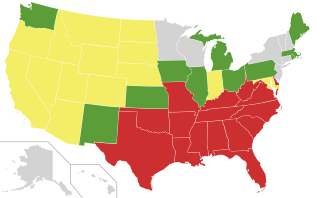
Interracial marriage has been legal throughout the United States since at least the 1967 U.S. Supreme Court decision Loving v. Virginia (1967) that held that anti-miscegenation laws were unconstitutional via the 14th Amendment adopted in 1868. Chief Justice Earl Warren wrote in the court opinion that "the freedom to marry, or not marry, a person of another race resides with the individual, and cannot be infringed by the State." Interracial marriages have been formally protected by federal statute through the Respect for Marriage Act since 2022.
Anti-miscegenation laws are laws that enforce racial segregation at the level of marriage and intimate relationships by criminalizing interracial marriage and sometimes, they also criminalize sex between members of different races.

In the United States, many U.S. states historically had anti-miscegenation laws which prohibited interracial marriage and, in some states, interracial sexual relations. Some of these laws predated the establishment of the United States, and some dated to the later 17th or early 18th century, a century or more after the complete racialization of slavery. Nine states never enacted anti-miscegenation laws, and 25 states had repealed their laws by 1967. In that year, the U.S. Supreme Court ruled in Loving v. Virginia that such laws are unconstitutional under the Fourteenth Amendment to the U.S. Constitution.
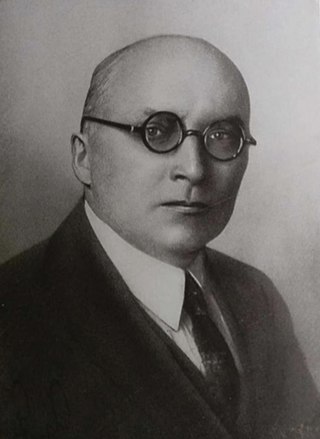
Erich Bernhard Theodor Schultz-Ewerth was a German jurist, ethnologist and colonial administrator, who served as the last governor of German Samoa.
